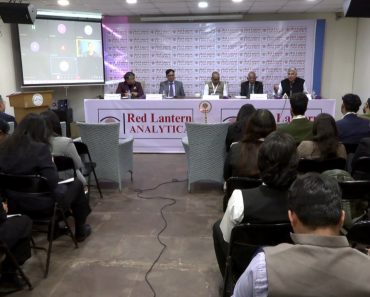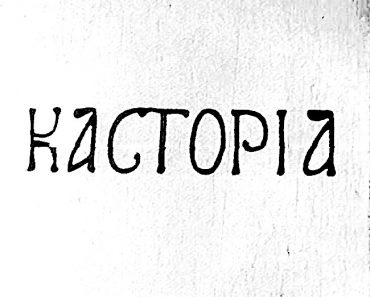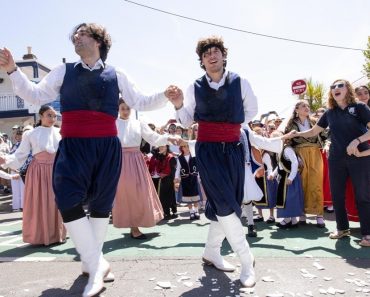The 37th Antipodes Festival returns this weekend, an annual event which has become part of Melbourne’s cultural life is stewarded by the Greek Community of Melbourne (GCM).
As its director Jorge Menidis says, Antipodes celebrates Greek Australian culture as well as Greek culture.
“It is a Melbourne festival, not a ‘Greek festival.’ It defines one’s identity—it is born of another place and another time but speaks to a generation that has been born here, in the Antipodes,” says Menidis.
Over 100,000 people will flood the Lonsdale Street corridor over Saturday and Sunday in a vibrant showcase of Greek music, dance, food, and beverages, all while communing with their fellow Greek Australians and other festivalgoers.
“The artists, the musicians and dancers, and the audience identify with something that is geographically remote but inherent in their own personal identities,” Menidis adds.
Tier 1 event with economic and cultural impact
Menidis has been at the helm for over 25 years, during which Antipodes has evolved into a ‘Tier 1 Event,’ signifying its substantial impact on the economy, culture, and brand of the city.
Leonidas Vlahakis, the chair of Antipodes and a GCM board member, highlights the professionalisation of the festival’s operations.
“One of the strategic moves in recent years was to create a professional, paid crew, instead of a volunteer crew,” Vlahakis says. “You cannot run a professional Tier 1 festival solely on volunteers.”
“I’ve been on the board for 25 years, and you can see the progression—there were around 25 stalls 20 years ago, and now there are 95 stalls: community stalls, retailers, food vendors, and more.”
Vlahakis emphasizes the festival’s deep-rooted connection to Lonsdale Street, once the epicentre of Melbourne’s Greek community.
“The city evolves, but being the historic Greek centre, even though there isn’t a huge horizontal presence anymore, there’s also the Greek Community building here, which is 15 floors high—we have a vertical precinct.”
However, staging the event in the heart of the city comes with logistical challenges.
“We block off two of Melbourne’s major routes, one being a major bus route,” he explains.
“It’s surreal—on the Monday morning after the festival, I take a photo of the first bus to go down Lonsdale Street. The drivers and passengers have no idea that 100,000 people were celebrating a huge festival the day before.”
A Festival standing on its own
Both Vlahakis and Menidis welcome their evolving roles in the festival’s future, having ensured that Antipodes can now run independently of them.
“People are employed to run Antipodes—we now have a professional team,” says Menidis. “From the young people on the ground to marketing and media, the elements are professional. The festival now stands on its own two feet.”
New ritual for Generations
Despite changes in audience and artists over the past 25 years, the intangible spirit of Antipodes remains, according to Vlahakis. He points to the many intergenerational folkloric dancing groups as an example.
“This event is like their AFL Grand Final, and I get emotional when I think of it,” he says. “I love seeing the older generation gathering to watch the dance groups. Someone once told me, ‘I come here every year because I want to see my grandchild dance.’”
He adds, “I’ve watched kids perform in youth groups who are now in adult groups, and some are now teaching the next generation.”
Beyond tradition, the festival features some of Greece’s most exciting contemporary artists. Among them are the Xylourides—offspring of Cretan lute master George Xylouris—who bring a mix of traditional and punk influences.
“Bands like the Xylourides last year were a revelation for me,” says Vlahakis.

Growing appeal to non-Greeks
Vlahakis and Menidis agree that the festival is drawing an increasingly diverse audience.
“It’s not Melbourne’s Greek festival; it’s the festival that the Melbourne Greek community gifts to this city—a beacon of multiculturalism,” Vlahakis says.
He notes the presence of many non-Greek attendees, including visitors from India, Africa, and Asia.
“A few thousand people travel to Melbourne specifically for the festival, which is impressive,” he says. “We even have a cohort of Asian visitors who call in June the year before to book accommodation. We’re also seeing an increase in Philhellenes coming from Hobart, Perth, and New Zealand.”
The living culture of Greek Australia
Menidis describes Antipodes as a cultural event that deeply impacts both the Greek Australian community and Melbourne as a whole.
“I use the word ‘cultural’ in its broadest definition,” he says. “Other than possibly football or soccer, this is the one non-sporting activity that involves and engages young people—third and fourth-generation Greek Australians.”
The festival has also seen a surge in younger generations wanting to participate.
“The demand from young people to be part of the crew, volunteers, and staff is phenomenal,” Menidis says. “The audience has changed completely—it was once all first-generation Greek immigrants and families. Now, it’s third and fourth-generation attendees who want to see their friends and family.”
Vlahakis calls the festival “a new ritual defining our community and future generations.”
Menidis likens the festival’s role to that once played by Greek Easter.
“The annual gathering of people at Easter to see their friends, family, and neighbours—that’s now been taken up by Antipodes,” he says. “It’s secular and creative nature makes it accessible to everyone, regardless of culture or faith.”
Reclaiming Melbourne’s streets
A seasoned veteran of major events like the Sydney Comedy Festival, Menidis loves the “guerrilla aspect” of the street festival.
“I love the reclamation of space—taking over a major thoroughfare and suddenly filling it with cooking, dancing, and celebration. That freedom to express oneself with all the joy of Greek party culture is what makes Antipodes so special.”
More than just an expression of Greek heritage, he argues, Antipodes is quintessentially Melbourne.
“The number one thing I keep telling people is that Antipodes is more Melbourne than it is Greek.”
Bill Papastergiadis, president of the Greek Community of Melbourne, backs this claim with hard data.
“We have empirical evidence that supports the fact that Antipodes has major social, cultural, and economic benefits for Victoria,” he says.
A study commissioned by Melbourne University found that nearly 50% of attendees were non-Greeks, with a significant proportion coming from interstate or regional Victoria.
“The main reason people attend the festival is its cultural offering,” Papastergiadis says.
Antipodes is built to last
Antipodes continues to grow and, Papastergiadis highlights the increasing involvement of younger generations.
“The core teams running the festival are in their 20s and 30s, with more teens joining. The demand to volunteer and assist is through the roof,” he says. “Even my 18-year-old son volunteers for the entire weekend.”
Vlahakis, with a furrowed brow, “The silent disco is selling like crazy—I don’t get it, but I’ll probably put on the headphones and let loose.”
The others laugh at the thought, and Vlahakis responds in mild annoyance, “The festival is a ritual ok for all!”
That it is.
For the full program of events over the weekend visit this link.






